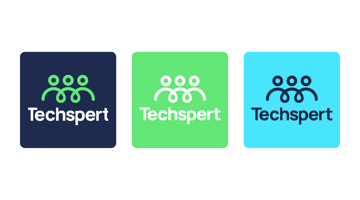We’ve updated our brand identity, with a fresh look and feel and a new website that truly reflects...
AI and Expert Networks... A match made in heaven or hell?
When Techspert was founded in 2016, the potential for AI to transform Expert Networks was already a central focus of my vision. By early 2022, as excitement around ChatGPT surged, I delved into how AI, specifically large language models (LLMs), might revolutionize the industry again. Now that our understanding of LLMs has evolved, it’s time to revisit and explore this intersection through the same five critical questions I posed back then.
1. Are Large Language Models (LLMs) Relevant for Expert Networks?
The answer remains a resounding 'yes'. Most expert networks are now using these models in their processes.
It's not surprising that this sector is being disrupted at pace by generative AI. The leaps have been in large language models. The EN sector's output is language-based expert content. GenAI models are, therefore, the ideal companion. They can process all that expert content much quicker than humans, saving time in the processing of expert outputs, as well as adding value operationally by generating content about experts and using content to match experts more accurately to customers' needs.
2. Will AI experts replace the need for human experts?
The answer remains 'no'. This has become clearer over the past year as the understanding of what LLMs can and can't do has grown.
LLMs Can't provide new or original viewpoints about products, markets, companies, opportunities, or pain points. They can synthesize publicly available information with greater speed and efficiency than humans.
LLMs are, therefore, transforming secondary research. Before, analysts trawled through Google results and secondary material to gather information for their analysis. Now, AI is now doing a lot of the heavy lifting here. For example, if you want to gain an initial, broad understanding of the veterinary radiology market in Belgium, then an off-the-shelf model will do a solid job of saving hours.
However, if you are developing a product for the veterinary radiology market, then you don't need a primer on the industry, you need insights directly from frontline professionals to understand how they use existing products and what the unmet needs are etc. The need for this kind of research hasn't changed, and it won't do for the foreseeable future.
GenAI does open up new opportunities for combining primary and secondary research in new ways, however. For example, Expert Networks can provide secondary research capabilities in their platforms that combine and complement the primary expert connections. Techspert is moving in this direction with ECHO Ask. On the flip side, Market Intelligence and Research platforms are crossing the bridge in the other direction, serving expert insights and transcripts alongside secondary market intelligence in the platform. Ultimately, tools like ECHO will progress into this territory, allowing entire companies to surface secondary market research insights from previous primary interactions.
This opens up the industry, increasing the scale of opportunity for both Expert Networks and Market Intelligence platforms and leading to new frontiers of competition for incumbents in both industries.
3. Will GenAI reshape how clients consume expert insights?
‘Yes, this is occurring incrementally.’
A vision for the future here is that customers engage end-to-end with an AI Assistant to request primary research, review, and book experts and are able to ask research questions directly to the AI assistant and get answers that weave together primary content from the experts with secondary sources to give the most comprehensive analysis, delivering outputs that would take humans many days or weeks of research. The assistant could also recommend additional experts and sources for surveys or calls that would deepen the analysis further.
However, in reality, the process will iterate and evolve more incrementally over time. Changing workflows that involve multiple platforms and interdependent processes is notoriously sluggish. This is one challenge faced by expert networks. Nevertheless there are changes are happening...
For example, reviewing and booking experts is incrementally changing. Expert bio content can now be generated by AI, with vetting curation by humans, and on the back end, expert matching is undergoing AI-driven improvements to ensure expertise is linked to relevant projects with even further precision.
In addition, AI is adding huge value to the downstream processing of call and survey content. We rolled out AI-generated summaries early last year and were the first major expert network to do so. However, the pace of change is that we now consider these table stakes for the industry. The quality of transcripts has improved dramatically, too. This enables the next generation of features. Techspert has again been very early in releasing a conversational AI Assistant that customers use to query their transcripts, surfacing key quotes and expert views across hours of calls. This is a logical direction and application of LLMs, with the potential to save customers huge amounts of time and effort. Keep tuned; this is an exciting area to watch, and the potential for disruption is high.
4. Will generative AI transform the operations of Expert Networks?
Again, 'yes'. This is underway. Whether firms are integrating with the enterprise API LLMs or whether project managers are using subscriptions to the off the shelf models, most networks will be using LLMs in their operations already.
Techspert is integrated with LLMs throughout our stack. This is greatly improving operational efficiency, and this will continue to gain steam across the industry and improve service quality. The role of professionals in the industry to ensure needs are interpreted accurately, and experts are correctly vetted will remain as important as ever, though. Reports of fraudulent, faked 'expert' responses to surveys, in particular, are rife, and human oversight is needed to make sure the quality of research remains at the highest level.
5. Who will benefit?
Clients are the clear winners as expert networks embrace more powerful AI models. These advancements promise not only better research tools but also significant time savings and more informed decision-making. The compliance environment has also stabilized; the initial apprehensions have given way to a better understanding of how to balance AI's benefits against potential risks, ensuring greater security and control for clients of the sector.
Conclusion: AI in Expert Networks – Heavenly Match or Hell?
The synergy between expert content and AI is predominantly beneficial, creating vast opportunities for both expert networks and market research platforms. While there is potential for disruption, the current trajectory suggests that the benefits far outweigh the risks. As companies like Techspert lead the charge, the race to harness AI effectively continues, promising to reshape the landscape of market research and beyond. Expert content will be king, and whoever has the greatest ability to acquire this validated resource at scale will ultimately be in the best position to add the most value to their customers.
This journey from cautious optimism to robust AI integration in expert networks underscores a shift towards more sophisticated, efficient, and insightful research methodologies, and one that is in the structural DNA of Techsperts operations. The future is bright, and it's wired with AI.
Get in touch to discuss bringing the power of ECHO Ask to your next primary research project.




